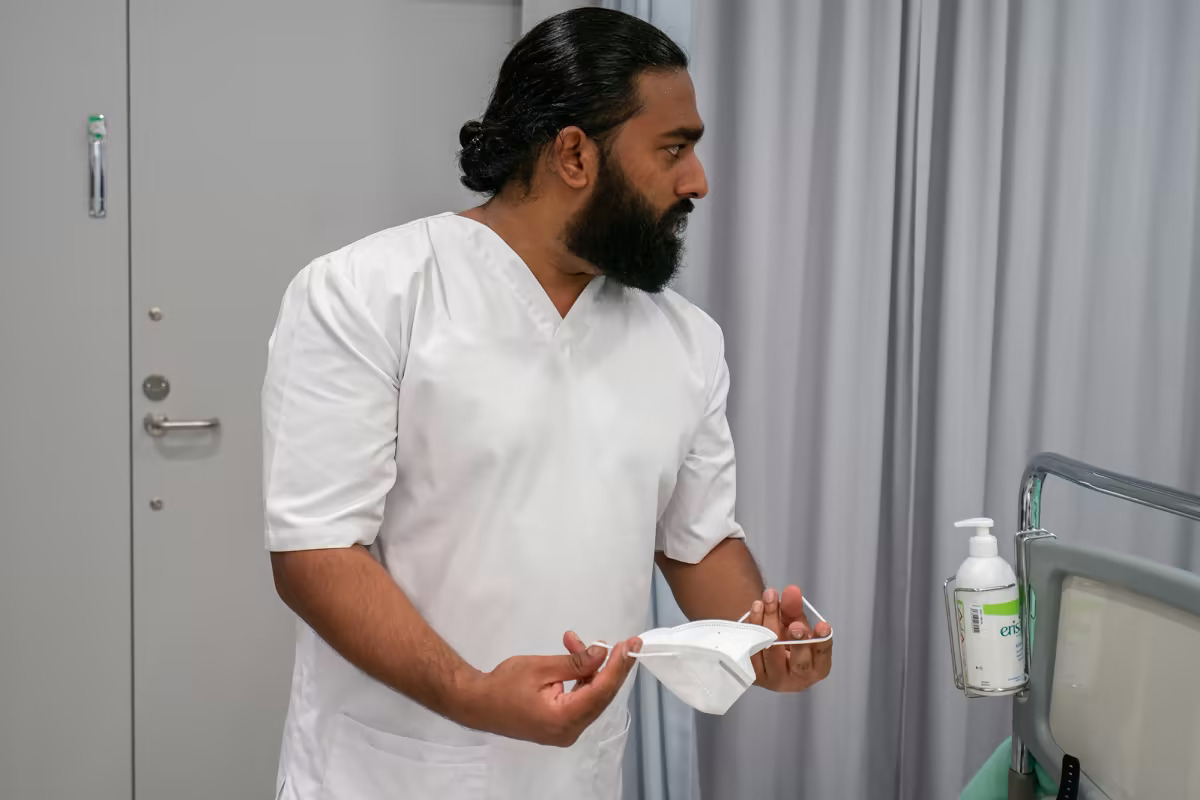Metropolia University of Applied Sciences has the most graduating social and health professionals of all Finnish University of Applied Sciences. According to Vipunen – Education Statistics Finland, 1029 people completed a bachelor’s degree in health and well-being in Metropolia in the year 2020. A total of 8676 bachelor’s degrees in health and well-being were completed in Finland in 2020. In addition, 1350 undergraduate degrees were completed in Finland.
Internships in the social and health care field cost millions of euros every year universities of applied sciences. In many other fields, students receive a salary for the internship. According to Akava Special Branches (Akavan Erityisalat), University of Applied Sciences internships should provide at least a salary that meets the employment condition, at least when the student is already doing productive work for the employer with the accumulated skills. In 2022, the salary that meets the employment condition is 1283 euros per month. If the internship is unpaid, it should consist of only getting to know the job under the guidance of a supervisor and following the job. It must not involve demanding or independent work. However, many students work as part of a working community and use their professional skills acquired from their studies and perform demanding tasks. Trainees may even be counted as part of the labour force. An unpaid internship does not create an employment relationship, in which case the intern is excluded from employment legislation. Thus, an internship does not accrue an employment condition i.e., the right to an earnings-related daily allowance. An internship is also not covered by workplace insurance. Thus, the university of applied sciences must also take care of (and pay for) the insurance.
The money that universities of applied sciences use to pay for internships could be used both to develop and improve teaching and to train new professionals. The increase in distance learning, especially due to the corona pandemic, has contributed to a decline in practical skills. There would therefore be a clear need for additional investment. The money going to the internships, which is about 8 million euros, would train 1,000 new experts in the field to Finland.
At the beginning of January, the Rectors’ Conference of Finnish Universities of Applied Sciences Arene, published an article on the subject. According to Arene, 70% of internships in the social and health sector require internship fees. University of Applied Sciences is the only education sector that pays health and social services internship fees. Internship fees account for less than half a per mil of health care costs, but for the University of Applied Sciences, the amount is large. The government has outlined that internship fees will be waived during this term as part of the health and social services reform. Arene’s chairperson of the board, Mervi Vidgrén, says the promises must now be delivered, as the University of Applied Sciences has decided not to sign contracts for new wellbeing counties until the matter has been rectified.
County elections will be held next Sunday, January 23. The county councils decide on the organization and financing of social and health services. By voting, you can also influence matters related to the financing of internships. Paid internships make studies in the social and health fields more attractive.
Authors: Adel Rizvi and Mari Purhonen
Sources:
Akavan Erityisalat, Palkaton vai palkallinen työharjoittelu?
Ammattikorkeakoulujen rehtorineuvosto Arene, Ammattikorkeakoulut: Sosiaali- ja terveysalan harjoittelumaksuihin menevät rahat tarvitaan laadukkaaseen koulutukseen
Opetushallinnon tilastopalvelu Vipunen, Suoritetut ammattikorkeakoulututkinnot vuonna 2020

This post is also available in Suomi.
